Breadcrumb
Where: National Library of Australia in Canberra
Event date: Monday 29 September 2025
Creative Australia has today revealed the shortlist for the 2025 Prime Minister’s Literary Awards, the richest literary prize in the nation. The awards celebrate the exceptional talents of emerging and established Australian writers, illustrators, poets, and historians.
The Prime Minister’s Literary Awards acknowledge the contribution of Australian literature to the nation’s cultural and intellectual life. This marks the third year Creative Australia has delivered the awards, following the release of the Australian Government’s 2023 National Cultural Policy, Revive: a place for every story, a story for every place.
Newly appointed Director, Writing Australia Wenona Byrne said:
“These awards celebrate the highest expression of literary excellence, and we warmly congratulate the shortlisted authors and illustrators on this recognition of their outstanding work.
"This year marks the first delivery of the Prime Minister’s Literary Awards under Writing Australia. The Awards are a key part of our commitment to supporting the literature sector, and we are proud to celebrate these works as part of a new era in Australian writing.”
Creative Australia received a remarkable 645 entries across six literary categories: fiction, non-fiction, young adult literature, children’s literature, poetry, and Australian history.
Expert judging panels have carefully considered entries for the awards to select the final shortlists, which can be seen below.
The winners of the 2025 Prime Minister’s Literary Awards will be announced on Monday 29 September at a prestigious ceremony held at the National Library of Australia in Canberra. Both the winners and the shortlisted authors will share in a tax-free prize pool of $600,000, making it the richest literary prize in Australia. Each shortlisted entry will receive $5,000 with the winner of each category receiving $80,000.
For more information on the shortlists, including judging panel comments, please see below on this page. Join the conversation by using our hashtag #PMLitAwards.
History of the awards
The Prime Minister’s Literary Awards began in 2008. The Awards recognise individual excellence and the contribution Australian authors make to the nation’s cultural and intellectual life.
In 2008 and 2009, awards were given in fiction and non-fiction categories. In 2010, categories were introduced for young adult and children’s fiction. In 2012 the poetry category was added and the Prime Minister’s Prize for Australian History was incorporated into the Awards. Previous winners of the award include Michelle de Kretser, Tara June Winch, Omar Sakr, Gerald Murnane, Nam Le, and Judith Brett.
On 30 January 2023 the Australian Government released its landmark National Cultural Policy—Revive: a place for every story, a story for every place. ‘Revive’ is a five-year plan to renew and revive Australia’s arts, entertainment and cultural sector, following the most difficult period for the sector in generations. ‘Revive’ is available at www.arts.gov.au/culturalpolicy.
One of the announcements in ‘Revive’ was the transfer of the Prime Minister’s Literary Awards (the Awards) to Creative Australia from July 2023, with Writing Australia to manage the Awards from July 2025. This move will ensure that the future delivery of the Awards aligns with the principles established under ‘Revive’ including that funding for the artists should be at arm’s length from the Government of the day.
Previous shortlist & recipients: 2008 to 2024
2024
Find the 2024 winners, shortlistees and judges here.
2023
Find the 2023 winners, shortlistees and judges here.
2022
Find the 2022 winners, shortlist and judges here.
2021
Find the 2021 winners, shortlist and judges here.
2020
Find the 2020 winners, shortlist and judges here.
2019
Find the 2019 winners, shortlist and judges here.
2018
Find the 2018 winners, shortlist and judges here.
2017
Find the 2017 winners, shortlist and judges here.
2016
Fiction
[Winner] The Natural Way of Things – Charlotte Wood
[Winner] The Life of Houses – Lisa Gorton
Forever Young – Steven Carroll
The World Repair Video Game – David Ireland
Quicksand – Steve Toltz
Children’s literature
[Winner] Sister Heart – Sally Morgan
The Greatest Gatsby : A Visual Book of Grammar – Tohby Riddle
Adelaide’s Secret World – Elise Hurst
Perfect – Danny Parker, Illustrator: Freya Blackwood
Mr Huff – Anna Walker
Non-fiction
[Winner] On Stalin’s Team: the Years of Living Dangerously in Soviet Politics – Sheila Fitzpatrick
Tom Roberts and the Art of Portraiture – Julie Cotter
[Winner] Thea Astley: Inventing her own Weather – Karen Lamb
Island Home – Tim Winton
Second Half First – Drusilla Modjeska
Poetry
[Winner] The Hazards – Sarah Holland-Batt
The Ladder – Simon West
Waiting for the Past – Les Murray
Cocky’s Joy – Michael Farrell
Net Needle – Robert Adamson
Young adult literature
[Winner] A Single Stone – Meg McKinlay
Green Valentine – Lili Wilkinson
Inbetween Days – Vikki Wakefield
Becoming Kirrali Lewis – Jane Harrison
Illuminae: The Illuminae Files _01 – Amie Kaufman and Jay Kristoff
Australian history
[Winner] The Story of Australia’s People. The Rise and Fall of Ancient Australia – Geoffrey Blainey AC
[Winner] Let my people go: the untold story of Australia and the Soviet Jews 1959–89 – Sam Lipski AM & Suzanne D Rutland OAM
The War with Germany: Volume III—The Centenary History of Australia and the Great War – Robert Stevenson
Red Professor: The Cold War Life of Fred Rose – Peter Monteath and Valerie Munt
Ned Kelly: A Lawless Life – Doug Morrissey
2015
Children’s literature
[Winner] One Minute’s Silence – David Metzenthen, Illustrator: Michael Camilleri
Withering-by-Sea – Judith Rossell
Two Wolves – Tristan Bancks
My Dad is a Bear – Nicola Connelly, Illustrator: Annie White
My Two Blankets – Irena Kobald and Freya Blackwood
Young adult literature
[Winner] The Protected – Claire Zorn
Tigers on the Beach – Doug MacLeod
The Minnow – Diana Sweeney
The Astrologer’s Daughter – Rebecca Lim
Are You Seeing Me? – Darren Groth
Australian history
[Winner] Charles Bean – Ross Coulthart
Descent into Hell – Peter Brune
Menzies at War – Anne Henderson AM
[Winner] The Spy Catchers—The Official History of ASIO Vol 1 – David Horner
The Europeans in Australia—Volume Three: Nation – Alan Atkinson
Poetry
[Winner] Poems 1957–2013 – Geoffrey Lehmann
Exhibits of the Sun – Stephan Edgar
Towards the Equator: New & Selected Poems – Alex Skovron
Earth Hour – David Malouf
Devadatta’s Poems – Judith Beveridge
Non-fiction
[Winner] Wild Bleak Bohemia: Marcus Clarke, Adam Lindsay Gordon and Henry Kendall – Michael Wilding
[Winner] John Olsen: An Artist’s Life – Darleen Bungey
This House of Grief: The Story of a Murder Trial – Helen Garner
Private Bill – Barrie Cassidy
Encountering the Pacific: In the Age of Enlightenment – John Gascoigne
Fiction
[Winner] The Golden Age – Joan London
To Name Those Lost – Rohan Wilson
Golden Boys – Sonya Hartnett
Amnesia – Peter Carey
In Certain Circles – Elizabeth Harrower
2014
Non-fiction
[Winner] Moving Among Strangers – Gabrielle Carey
[Winner] Madeline: A Life of Madeleine St John – Helen Trinca
Rendezvous with Destiny – Dr Michael Fullilove
The Lucky Culture – Nick Cater
Citizen Emperor: Napoleon in Power 1799-1815 – Philip Dwyer
Australian history
[Winner] Broken Nation: Australians in the Great War – Joan Beaumont
[Winner] Australia’s Secret War: How unionists sabotaged our troops in World War II – Hal G.P. Colebatch
Arthur Phillip: Sailor Mercenary Governor Spy – Michael Pembroke
The Forgotten Rebels of Eureka – Clare Wright
First Victory: 1914 – Mike Carlton
Fiction
[Winner] The Narrow Road to the Deep North – Richard Flanagan
Coal Creek – Alex Miller
The Night Guest – Fiona McFarlane
[Winner] A World of Other People – Steven Carroll
Belomor – Nicolas Rothwell
Young adult literature
[Winner] The Incredible Here and Now – Felicity Castagna
Life in Outer Space – Melissa Keil
Girl Defective – Simmone Howell
The First Third – Will Kostakis
Pureheart – Cassandra Golds
Poetry
[Winner] Drag Down to Unlock or Place an Emergency Call – Melinda Smith
Eldershaw – Stephen Edgar
Chains of Snow – Jakob Ziguras
Tempo – Sarah Day
1953 – Geoff Page
Children’s literature
[Winner] Silver Buttons – Bob Graham
My Life As an Alphabet – Barry Jonsberg
Song for a Scarlet Runner – Julie Hunt
Kissed by the Moon – Alison Lester
Rules of Summer – Shaun Tan
2013
Children’s literature
[Winner] Red – Libby Gleeson
Today We have No Plans – Jane Godwin, Illustrator: Anna Walker
The Beginner’s Guide to Revenge – Marianne Musgrove
Young adult literature
[Winner] Fog a Dox – Bruce Pascoe
Everything Left Unsaid – Jessica Davidson
Friday Brown – Vikki Wakefield
Grace Beside Me – Sue McPherson
The Children of the King – Sonya Hartnett
Poetry
[Winner] Jam Tree Gully – John Kinsella
Liquid Nitrogen – Jennifer Maiden
The Sunlit Zone – Lisa Jacobson
Burning Rice – Eileen Chong
Crimson Crop – Peter Rose
Australian history
[Winner] Farewell, Dear People – Ross McMullin
Gough Whitlam: His Time (vol. 2) – Jenny Hocking
The Sex Lives of Australians: A History – Frank Bongiorno
The Censor’s Library – Nicole Moore
Sandakan – Paul Ham
Non-fiction
[Winner] The Australian Moment – George Megalogenis
Uncommon Soldier – Chris Masters
Bradman’s War – Malcolm Knox
Plein Airs and Graces: The life and times of George Colingridge – Adrian Mitchell
Bold Palates: Australia’s gastronomic heritage – Barbara Santich
Fiction
[Winner] Questions of Travel – Michelle de Kretser
Lost Voices – Christopher Koch
Floundering – Rommy Ash
Mateship with Birds – Carrie Tiffany
The Chemistry of Tears – Peter Carey
2012
Australian history
The Biggest Estate on Earth: How Aborigines Made Australia – Peter Grammage (Winner)
1835: The Founding of Melbourne and the Conquest of Australia – James Boyce
Indifferent Inclusion: Aboriginal People and the Australian Nation – Russell McGregor
Immigration Nation: The Secret History of Us – TV series
Breaking the Sheep’s Back – Charles Massy
Young adult literature
[Winner] When We Were Two – Robert Newton
A Straight Line to My Heart – Bill Condon
Alaska – Sue Saliba
Being Here – Barry Jonsberg
Pan’s Whisper – Sue Lawson
Fiction
[Winner] Foal’s Bread – Gillian Mears
Autumn Laing – Alex Miller
Sarah Thornhill – Kate Grenville
All That I Am – Anna Funder
Forecast: Turbulence – Janette Turner
Poetry
[Winner] Interferon Psalms – Luke Davies
Armour – John Kinsella
Southern Barbarians – John Mateer
New and Selected Poems – Gig Ryan
Ashes in the Air – Ali Alizadeh
Children’s literature
[Winner] Goodnight Mice! – Frances Watts, Illustrator: Judy Watson
Father’s Day – Anne Brooksbank
The Jewel Fish of Karnak – Graeme Base
Come Down, Cat? – Sonya Hartnett, Illustrator: Lucia Masciullo
Evangeline, Wish Keeper’s Helpe – Maggie Alderson
Non-fiction
[Winner] An Eye for Eternity: The Life of Manning Clark – Mark McKenna
When Horse Became Saw – Anthony Macris
Michael Kirby Paradoxes and Principles – A J Brown
Kinglake-350 – Adrian Hyland
A Short History of Christianity – Geoffrey Blainey
2011
Children’s literature
[Winner] Shake a leg – Boori Monty Pryor and Jan Ormerod
Flyaway – Lucy Christopher
April Underhill, tooth fairy – Bob Graham
Now – Morris Gleitzman
Why I love Australia – Bronwyn Bancroft
Young adult literature
[Winner] Graffiti moon – Cath Crowley
The three loves of Persimmon – Cassandra Golds
The piper’s son – Melina Marchetta
The good oil – Laura Buzo
About a girl – Joanne Horniman
Fiction
[Winner] Traitor – Stephen Daisley
When Colts Ran – Roger McDonald
Roger McDonald – David Musgrave
That deadman dance – Kim Scott
Notorious – Roberta Lowing
Non-fiction
[Winner] The hard light of day: An artist’s story of friendships in Arrernte country – Rod Moss
Claude Levi-Strauss: the poet in the laboratory – Patrick Wilcken
Sydney – Delia Falconer
How to make gravy – Paul Kelly
The party – Richard McGregor
2010
Fiction
[Winner] Dog Boy – Eva Hornung
The Book of Emmett – Deborah Forster
Ransom – David Malouf
Summertime – J.M. Coetzee
The Lakewoman – Alan Gould
As the Earth Turns Silver – Alison Wong
Lovesong – Alex Miller
Non-fiction
[Winner] The Colony: A History of Early Sydney – Grace Karskens
The Life and Death of Democracy – John Keane
Strange Places: A Memoir of Mental Illness – Will Elliott
The Water Dreamers – Michael Cathcart
The Blue Plateau: A Landscape Memoir – Mark Tredinnick
The Ghost at the Wedding – Shirley Walker
Children’s literature
[Winner] Star Jumps – Lorraine Marwood
Running with the Horses – Alison Lester
Harry and Hopper – Margaret Wild
Tensy Farlow and the Home for Mislaid Children – Jen Storer
Cicada Summer – Kate Constable
The Terrible Plop – Ursula Dubosarsky, Illustrator: Andrew Joyner
Young adult literature
[Winner] Confessions of a Liar, Thief and Failed Sex God – Bill Condon
Stolen: A Letter to My Captor – Lucy Christopher
Beatle Meets Destiny – Gabrielle Williams
The Winds of Heaven – Judith Clarke
The Museum of Mary Child – Cassandra Golds
Swerve – Phillip Gwynne
Jarvis 24 – David Metzenthen
2009
Fiction
[Winner] The Boat – Nam Le
The Good Parents – Joan London
Wanting – Richard Flanagan
The Pages – Murray Bail
People of the Book – Geraldine Brooks
Everything I knew – Peter Goldsworthy
One Foot Wrong – Sofie Laguna
Non-fiction
[Winner] House of Exile: The Life and Times of Heinrich Mann and Nellie Kroeger-Mann – Evely Juers
American Journeys – Don Watson
Van Diemen’s Land – James Boyce
Doing Life: A Biography of Elizabeth Jolley – Brian Dibble
The Henson Case – David Marr
Gough Whitlam: A Moment in History – Jenny Hocking
[Winner] Drawing the Global Colour Line – Marilyn Lake and Henry Reynolds
The Tall Man – Chloe Hooper
2008
Non-fiction
Ochre and Rust: Artefacts and Encounters on Australian Frontiers – Philip Jones (Winner)
Cultural Amnesia: Notes in the Margin of My Time – Clive James
My Life as a Traitor – Zarah Ghahramani, Robert Hillman
Napoleon: The Path to Power, 1769–1799 – Philip Dwyer
Shakespeare’s Wife – Germaine Greer
Fiction
The Zoo Keeper’s War – Steven Conte (Winner)
Burning In – Mireille Juchau
Sorry – Gail Jones
El Dorado – Dorothy Porter
The Complete Stories – David Malouf
Jamaica: A Novel – Malcolm Knox
The Widow and her Hero – Tom Keneally
Judging panels 2008-2025
2025
Fiction
George Haddad (NSW)
Dr George Haddad is an award-winning writer, artist and academic. His novella, Populate and Perish, was the winner of the 2016 Viva La Novella competition and his short story Kátharsis was awarded the 2018 Neilma Sidney Prize. George’s novel, Losing Face, was longlisted for the Miles Franklin Award and shortlisted for the Prime Minister’s Literary Award, the Small Press Network’s Book of the Year, and The Readings Prize. In 2023 he was named a Sydney Morning Herald Best Young Novelist. He is a lecturer at the Writing and Society Research Centre, Western Sydney University.
Chloe Hooper (VIC)
Chloe Hooper is the award-winning author of fiction and non-fiction, including The Tall Man and The Arsonist. Lauded for her “prodigious talent” (Guardian) and “the intelligence and beauty of her writing” (New York Times) she is one of Australia’s finest storytellers.
Julieanne Lamond (ACT)
Julieanne Lamond is a literary critic and member of the English faculty at Australian National University, where she is Head of the School of Literature, Languages and Linguistics. Her research and teaching focus on Australian literature and literary reception, including a long-term collaboration on the Stella Count, gathering data on gender representation in Australian book reviewing. Since 2016 she has co-edited the journal Australian Literary Studies.
Stephen Romei (NSW)
Stephen Romei is a writer, critic, editor and adjunct research fellow in the School of Humanities at La Latrobe University.
Children's literature
Daniel Gray-Barnett (TAS)
Daniel Gray-Barnett is an illustrator and author based in the Huon Valley, Tasmania. His beloved picture books include the award-winning Grandma Z, the Poems Aloud series written by Joseph Coelho and Come Over to My House, written by Australian Children's Laureate Sally Rippin and Eliza Hull.
Megan Daley (QLD)
Megan is an author, podcaster, literary judge, teacher librarian and early years educator. She has been awarded the ASLA Australian Teacher Librarian of the Year, the QSLA Queensland Teacher Librarian of the Year, and the national Dromkeen Librarian’s Award. Her books include Raising Readers (UQP, 2019/2025), Teacher, Teacher (Affirm Press, 2023) and The Beehive (Walker Books, 2024). A former national vice-president of the Children’s Book Council of Australia, Megan is also the artistic director of Somerset Storyfest, a seasoned speaker and the co-host of the Your Kid's Next Read podcast.
Jasmine Seymour (NSW)
Jasmine Seymour is a Dharug woman and descendant of Maria Lock, who was the daughter of Yarramundi, the Boorooberongal elder who had met Governor Phillip on the banks of the Hawkesbury River in 1791. Maria was the first Aboriginal woman to be educated by the Blacktown Native Institute. She was married to carpenter and convict, Robert Lock and their union resulted in thousands of descendants who can all trace their Dharug heritage back past Yarramundi. Jasmine is a member of the Dharug Custodian Aboriginal Corporation and is a Dharug language teacher, Dharug language activist, an award-winning children's book author-illustrator, a primary school teacher and a language researcher. Jasmine supports Australian language education for all and works towards advocating for and promoting multilingual Indigenous Australia.
It is Jasmine’s wish that through her books, everyone will know that the Dharug mob are still here, still strong. Jasmine is a primary school teacher in the Hawkesbury area of NSW.
Joy Lawn (NSW)
Joy Lawn is a book advocate, reviewer, interviewer and critic. She currently writes for Magpies magazine, Books+Publishing and ArtsHub. She has judged the Children’s Book Council of Australia awards and other major awards, blogs at Paperbark Words and loves moderating at writers’ festivals. Joy is fascinated by ideas and images and how authors and illustrators express these with truth and originality.
Young adult
Amie Kaufman (VIC)
Amie Kaufman is a New York Times, USA Today and internationally bestselling author of science fiction and fantasy. With over a million books in print, her multi-award-winning work has been translated into nearly thirty languages and is in development for film and TV. Amie has degrees in history, literature, law, and conflict resolution, and is currently undertaking a PhD in Creative Writing. She’s the host of podcasts Amie Kaufman on Writing, and Pub Dates.
A.J. Betts (WA)
A.J. Betts is a Fremantle-based author, speaker, teacher, columnist and cyclist. She has written six novels for young adults, including One Song, the speculative fiction duology Hive and Rogue, and Zac & Mia, which was adapted into an Emmy Award-winning Hollywood television series in 2017. In 2019, A.J. was awarded a PhD on the topic of wonder (Edith Cowan University) and won the inaugural Western Australian Premier's Fellowship. Other awards include the NSW Premier’s Literary Award, the Text Prize, and the West Australian Young Readers’ Book Award.
Leanne Hall (VIC)
Leanne Hall is an award-winning Australian author for young adults and children. Her most recent YA novel, The Gaps, won a Prime Minister’s Literary Award, an Adelaide Festival Award for Literature and the Ethel Turner Prize at the NSW Premier’s Literary Awards. Leanne has also had short stories published in Meanjin, Best Australian Stories, and the anthology Growing Up Asian in Australia. Leanne was an Asialink Artist in Residence at Peking University, a Children’s Literature Fellow at the State Library of Victoria and is currently a PhD candidate at RMIT University.
Poetry
Ali Cobby Eckermann (SA)
Yankunytjatjara poet Ali Cobby Eckermann’s first collection little bit long time was written in the desert and launched her literary career in 2009.
In 2013 Ali toured Ireland as Australian Poetry Ambassador and won NSW Premier's Literary Awards Book of the Year for Ruby Moonlight. Ali is an alumna of the International Writing Program at the University of Iowa, and in 2017 received a Windham-Campbell Award for Poetry from Yale. In 2024 Ali won the NSW Premier's Literary Awards Book of the Year for She Is The Earth.
Jaya Savige (UK)
Jaya Savige’s poetry collections include latecomers (UQP), which won the NSW Premier’s Kenneth Slessor Prize, Surface to Air (UQP) and most recently, Change Machine (UQP 2020), which was shortlisted for the Prime Minister’s Literary Award for Poetry, the NSW Premier’s Kenneth Slessor Prize, the QLA Judith Wright Calanthe Prize and the Queensland Premier’s Award for a work of State Significance. A former Gates Scholar at the University of Cambridge, Jaya is poetry editor for The Australian, and his essays and reviews have appeared throughout Australia and abroad.
Martin Duwell (QLD)
Martin Duwell taught for many years in the School of English Media Studies and Art History at the University of Queensland. He edited Makar magazine and ran its associated press in the seventies and eighties. He has published a number of books including (with R.M.W Dixon) two anthologies of Aboriginal song poetry. He has written extensively on contemporary Australian poetry and, since 2006, has published a monthly review on the website Australian Poetry Review (www.australianpoetryreview.com.au).
MTC Cronin (QLD)
MTC Cronin has published over twenty books (poetry, prose poems and essays) including several in translation.
Non-fiction
Delia Falconer (NSW)
Dr Delia Falconer is the author of two novels, The Service of Clouds and The Lost Thoughts of Soldiers; and two works of nonfiction, Sydney and Signs and Wonders: Dispatches from a time of beauty and loss). Her books have been shortlisted for national and international awards across the categories of fiction, nonfiction, innovation, biography, history and research. She was awarded a Walkley award for arts criticism in 2018 and has won the national 'Nib' for a book combining literary excellence and research in 2011 and 2022. She is also the editor of three books: The Best Australian Stories 2008, The Best Australian Stories 2009 and The Penguin Book of the Road. Delia's short stories and essays have been widely anthologised, including in the Macquarie PEN Anthology of Australian Literature and The Penguin Century of Australian Stories.
Gabrielle Chan (QLD)
Gabrielle Chan is a journalist, columnist and author and most recently, she was rural and regional editor of Guardian Australia. Gabrielle is the author of Rusted Off: Why Country Australia Is Fed Up (2018), which was shortlisted for the Prime Minister’s Literary Prize and the Walkley Book Award. Her latest book is Why You Should Give a F**k About Farming (2021).
Jessica White (SA)
Jessica White is the award-winning author of the novels A Curious Intimacy and Entitlement, and a hybrid memoir about deafness, Hearing Maud. Her essays, short fiction and poetry have appeared in a range of literary and academic journals and she has won national and international funding and residencies. Jessica teaches and researches in Creative Writing and Literature at the University of South Australia. Her essay collection, Silence is my Habitat: Ecobiographical Essays, will be published by Upswell in October 2025.
Maggie MacKellar (TAS)
Maggie MacKellar is an historian and writer who has published two books on the history of settlement in Australia and Canada and three memoirs, When It Rains, How To Get There and Graft. When it Rains won the Peter Blazey Fellowship and was shortlisted for the 2010 Queensland Premier's Award, The Victorian Premier's Award and 2010 The Age Book of the Year. Graft has been longlisted for the 2024 Stella Prize, The NIB Award, Highly Commended in The National Biography Award and shortlisted for the Prime Minister’s Literary Award and 2025 Tasmanian Premier’s Award. Maggie lives on the banks Kanamaluka/River Tamar in Tasmania with her partner. She runs the much-loved newsletter The Sit Spot.
Australian history
Jane Lydon (WA)
Professor Jane Lydon is the Wesfarmers Chair of Australian History at The University of Western Australia. She is interested in the ways that popular and especially visual culture have shaped ideas and debates about race, identity and culture that persist today. In particular, Jane is concerned with the history of Australia’s engagement with anti-slavery, humanitarianism, and ultimately human rights. Her recent books include The Flash of Recognition: Photography and the emergence of Indigenous rights, which won the 2013 Queensland Literary Awards’ USQ History Book Award, and Photography, Humanitarianism, Empire.
Crystal McKinnon (VIC)
Dr Crystal McKinnon is a Yamatji person and is an Associate Professor in History, Law and Justice at the University of Melbourne. Crystal is an extensively published academic and expert speaker and presenter on subjects related to critical Indigenous studies, colonial and Indigenous People’s histories, social movements, sovereignty and justice. Crystal is a member of various academic bodies and is involved in academic administration, university governance and wider participation in the Boards and steering committees of various not-for-profit and community organisations. She is the co-editor of Aboriginal History journal and co-convening editor of Postcolonial Studies Journal, and she is an Australian Research Council (ARC) DECRA fellow and a Chief Investigator for the ARC Centre of Excellence for Indigenous Futures.
Mark McKenna (NSW)
Mark McKenna is one of Australia’s leading historians. His most recent book, Return to Uluru (Black Inc. 2021) was shortlisted for the Prime Minister’s Prize for Australian History. From the Edge: Australia’s Lost Histories (MUP, 2016) won the NSW Premier’s Prize for Australian History. An Eye for Eternity: The life of Manning Clark (MUP 2011) won five national awards, including the Prime Minister’s Prize for Non-Fiction (2012). He is also the author of Looking for Blackfellas’ Point: An Australian History of Place (UNSW Press) which won the Book of the Year and the Douglas Stewart Prize for Non-Fiction in the 2003 NSW Premier’s Literary Awards. McKenna’s essays, reviews and political commentary have appeared in The Monthly, Meanjin, ABR, The Sydney Morning Herald, The Age and The Australian.
Ann Curthoys (NSW)
Ann Curthoys has researched, taught, and published on many aspects of Australian history, and on questions of feminism, cultural studies, and historical writing and theory. Her major publications include Freedom Ride: A Freedomrider Remembers (2002); (with John Docker) Is History Fiction? (2005, 2010); and (with Jessie Mitchell), Taking Liberty: Indigenous Rights and Settler Self-government in the Australian Colonies, 1830 – 1890.
2024
Fiction
Dr Debra Adelaide
Melinda Harvey
Nam Le
Tara June Winch
Poetry
Dan Disney
Lucy Dougan
Sarah Holland-Batt
James Jiang
Non-fiction
Debra Dank
Eda Gunaydin
Rick Morton
Jane Rawson
Children’s literature
Melissa-Jane Fogarty
Shirley Marr
Kirrin Sampson
Fiona Stager, OAM
Young adult literature
Kate Eltham
Pip Harry
Erin Wamala
Sean Williams
Australian history
Anna Clark
Dr Peter Hobbins
Tony Hughes-d’Aeth
Professor Lynette Russell AM FASSA FAHA
2023
Fiction
Helen Elliott
Jennifer Down
Roanna Gonsalves
Poetry
Andy Jackson
Jazz Money
Judith Beveridge
Non-fiction
Catherine Noske
Paul Cleary
Anna Krien
Children’s literature
Johanna Bell
Ambelin Kwaymullina
Özge Sevindik
Young adult literature
Isobelle Carmody
Rebecca Lim
Sean Williams
Australian history
Penny Russell FAHA
Professor Jane Lydon
Professor Clare Wright OAM
Michael Aird
2022
Non-fiction and Australian history panel
Professor Chris Dixon (Chair)
Chris Mitchell AO
Troy Bramston
Dr Deborah Hope
Professor Gail Pearson
Fiction and poetry panel
Geoffrey Lehmann (Chair)
Peter Craven
Stephen Romei
Associate Professor Sandra Phillips
Caroline Overington
Children’s and young adult literature panel
James Roy (Chair)
Demet Divaroren
Erica Wagner
Paula Kelly Paull
Dr Anthony Eaton
2021
Nonfiction and Australian history panel
Andrew Tink AM (Chair)
Chris Mitchell AO
Troy Bramston
Dr Deborah Hope
Professor Gail Pearson
Fiction and poetry panel
Professor Peter Holbrook FAHA (Chair)
Geoffrey Lehmann
Dr Roslyn Jolly
Peter Craven
Children’s and young adult literature panel
James Roy (Chair)
Demet Divaroren
Erica Wagner
Paula Kelly Paull
Richard Yaxley OAM
2020
Non-fiction and Australian history panel
Emeritus Professor Richard Waterhouse FRSN FAHA FASSA (Chair)
Dr Sally Warhaft
Emeritus Professor John Fitzgerald AM
Professor John Maynard
Fiction and poetry panel
Suzanne Leal (Chair)
Susan Wyndham
Dr Kerryn Goldsworthy
Professor Philip Mead
Dr Lucy Neave
Children’s and young adult literature panel
Professor Margot Hillel OAM (Chair)
Margrete Lamond
Kirli Saunders
James Roy
Demet Divaroren
2017-2019
Fiction and Poetry panel
Professor Bronwyn Lea (Chair)
Dr James Ley
Susan Wyndham
Associate Professor Sarah Holland-Batt
Kathy Shand (2017 & 2018)
Non-fiction and Australian history panel
Professor Lynette Russell AM (Chair)
Helen Trinca
Emeritus Professor Richard Waterhouse FRSN FAHA FASSA
Professor Greg Melleuish
Dr Sally Warhaft
Children’s and young adult literature panel
Professor Margot Hillel OAM (Chair)
Joy Lawn
Margrete Lamond (2017 & 2019)
Professor Robyn Ewing AM
Sue Whiting
Kerry Neary (2018)
2016
Fiction and Poetry panel
Louise Adler AM (Chair)
Jamie Grant
Dr Robert Gray
Des Cowley
Non-fiction and Australian history panel
Gerard Henderson (Chair)
Dr Ida Lichter MD
Peter Coleman AO
Professor Ross Fitzgerald AM
Children’s and young adult fiction panel
Mike Shuttleworth (Chair)
Dr Irini Savvides
Kate Colley
2015
Fiction and Poetry panel
Ms Louise Adler AM (Chair)
Mr Jamie Grant
Mr Robert Gray
Mr Des Cowley
Non-fiction and History panel
Dr Ida Lichter (Chair)
Mr Peter Coleman AO
Professor Ross Fitzgerald AM
Children’s and young adult fiction panel
Mr Mike Shuttleworth (Chair)
Dr Belle Alderman AM (Emeritus Professor)
Ms Kate Colley
Dr Mark MacLeod
Dr Irini Savvides
2014
Fiction and poetry
Ms Louise Adler AM (Chair)
Ms Margie Bryant
Mr Jamie Grant
Mr Robert Gray
Mr Les Murray AO
Non-fiction and History
Mr Gerard Henderson (Chair)
Mr Peter Coleman
Professor Ross Fitzgerald AM
Dr Ida Lichter
Dr Ann Moyal AM
Children and Young adults
Mr Mike Shuttleworth (Chair)
Emeritus Professor Belle Alderman AM (Emeritus Professor)
Ms Kate Colley
Dr Mark MacLeod
Dr Irini Savvides
2013
Fiction and poetry panel
Mr Joel Becker, (Chair)
Professor Chris Wallace-Crabbe AM
Winthrop Professor Phillip Mead
Ms Jane Sullivan
Non-fiction and history panel
Mr Michael Sexton SC (Chair)
Mr Colin Steele
Ms Susan Hayes
Professor Susan Magarey
Children’s and young adult fiction panel
Ms Judith White (Chair)
Ms Adele Rice
Mr Robert (Bob) Sessions
2012
Fiction and poetry panel
Mr Joel Becker (Chair)
Dr Lyn Gallacher
Professor Chris Wallace-Crabbe AM
Mr Peter Craven
Non-fiction and history panel
Mr Christopher (Chris) Masters PSM (Chair)
Dr Faye Sutherland
Mr Colin Steele
Dr Michelle Arrow
Children’s and young adult fiction panel
Ms Judith White (Chair)
Ms Mary-Ruth Mendel
Mr Robert (Bob) Sessions
2011
Fiction panel
Professor Peter Pierce (Chair)
Professor John A. Hay AC
Dr Lyn Gallacher
Non-fiction panel
Mr Brian Johns AO (Chair)
Mr Colin Steele
Dr Faye Sutherland
Children’s and young adult fiction panel
Dr Robyn Sheahan-Bright (Chair)
Ms Mary-Ruth Mendel
Mr Mike Shuttleworth
2010
Fiction panel
Professor Peter Pierce (Chair)
Professor John A Hay AC
Dr Lyn Gallacher
Non-fiction panel
Mr Brian Johns AO (Chair)
Mr Colin Steele
Dr Faye Sutherland
Children’s and young adult fiction panel
Dr Robyn Sheahan-Bright (Chair)
Ms Mary-Ruth Mendel
Mr Mike Shuttleworth
2009
Fiction panel
Professor Peter Pierce (Chair)
Professor John A. Hay AC
Dr Lyn Gallacher
Non-fiction panel
Phillip Adams AO (Chair)
Peter Rose
Professor Joan Beaumont FASSA
2008
Fiction panel
Professor Peter Pierce (Chair)
John Marsden
Margaret Throsby
Non-fiction panel
Professor Hilary Charlesworth (Chair)
Sally Morgan
John Doyle
Fiction
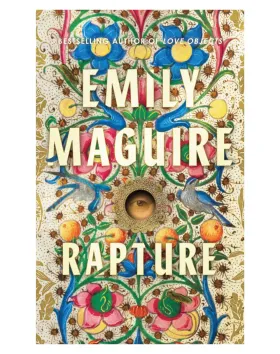
Rapture by Emily Maguire
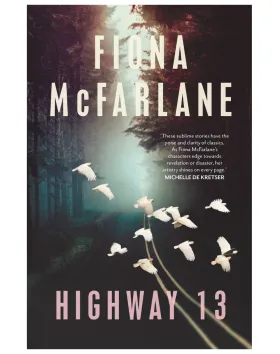
Highway 13 by Fiona McFarlane
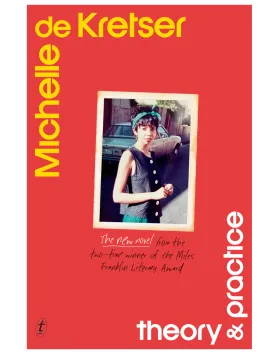
Theory & Practice by Michelle de Kretser
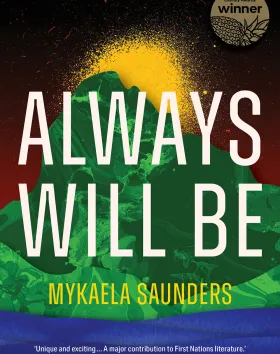
Always Will Be: Stories of Goori sovereignty from the futures of the Tweed by Mykaela Saunders
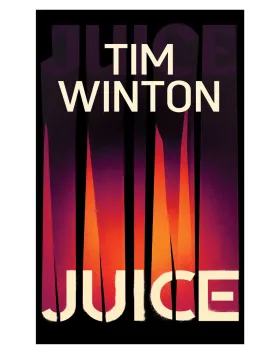
Juice by Tim Winton
Children's literature
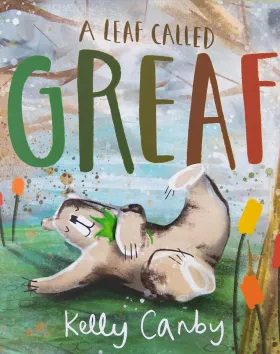
A Leaf Called Greaf by Kelly Canby
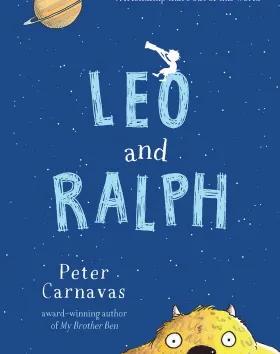
Leo and Ralph by Peter Carnavas
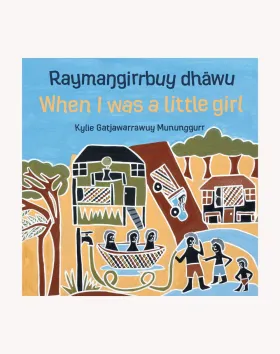
Raymaŋgirrbuy dhäwu When I was a little girl by Kylie Gatjawarrawuy Mununggurr
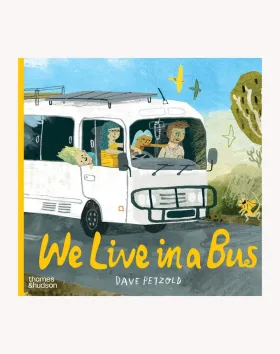
We Live in a Bus by Dave Petzold
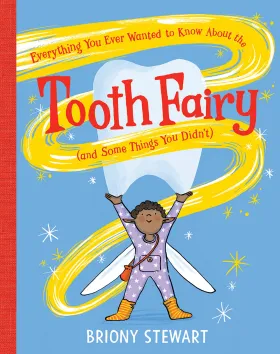
Everything You Ever Wanted to Know About the Tooth Fairy (And Some Things You Didn't) by Briony Stewart
Young adult literature
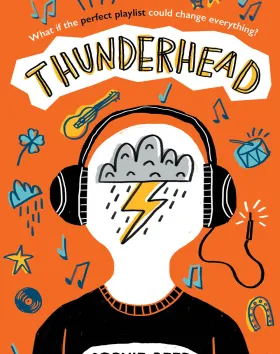
Thunderhead by Sophie Beer
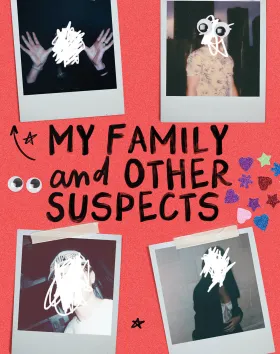
My Family and Other Suspects by Kate Emery
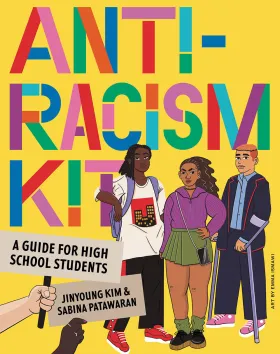
The Anti-Racism Kit by Jinyoung Kim & Sabina Patawaran
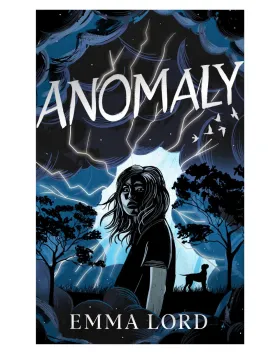
Anomaly by Emma Lord
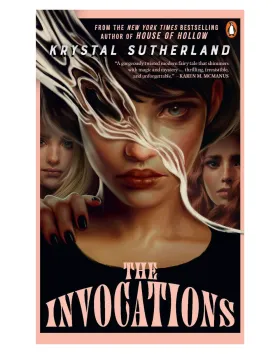
The Invocations by Krystal Sutherland
Poetry
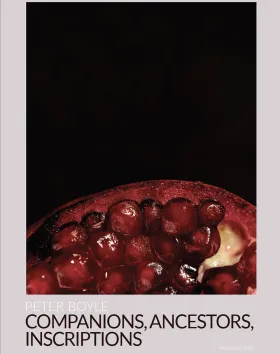
Companions, Ancestors, Inscriptions by Peter Boyle
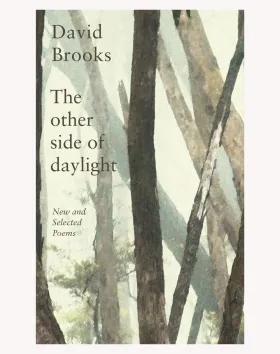
The Other Side of Daylight: New and Selected Poems by David Brooks University of Queensland Press
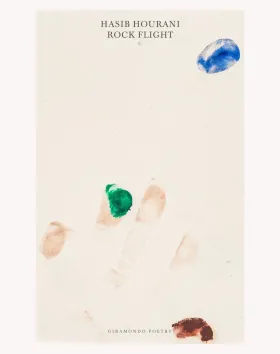
rock flight by Hasib Hourani
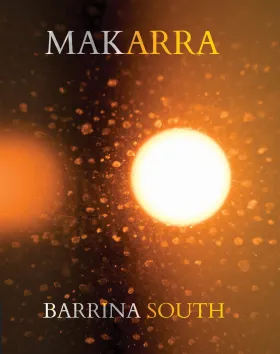
Makarra by Barrina South
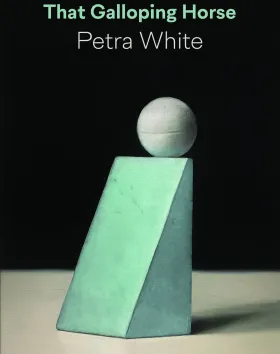
That Galloping Horse by Petra White
Non-fiction
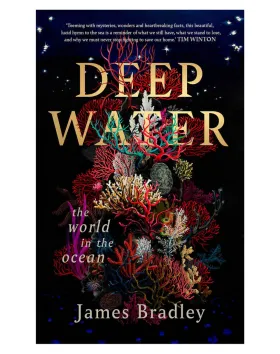
Deep Water by James Bradley
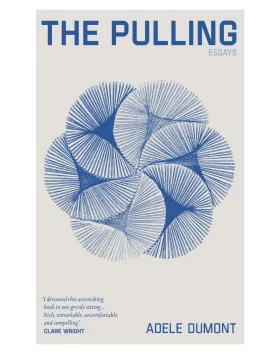
The Pulling by Adele Dumont
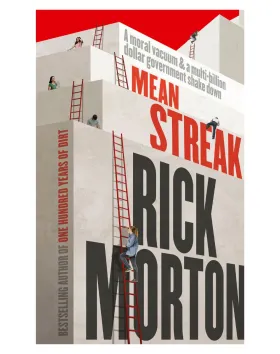
Mean Streak by Rick Morton
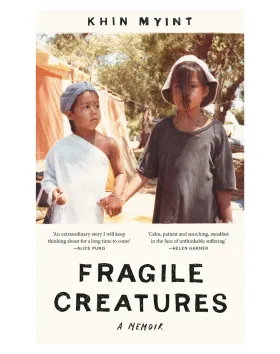
Fragile Creatures: A Memoir by Khin Myint
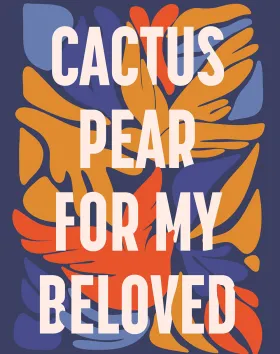
Cactus Pear for My Beloved by Samah Sabawi
Australian history
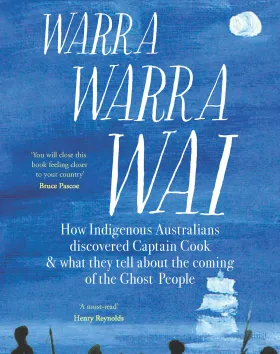
Warra Warra Wai: How Indigenous Australians discovered Captain Cook, and what they tell about the coming of the Ghost People by Darren Rix and Craig Cormick
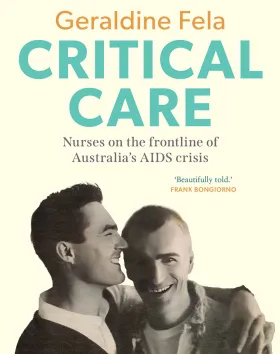
Critical Care: Nurses on the frontline of Australia's AIDS crisis by Geraldine Fela
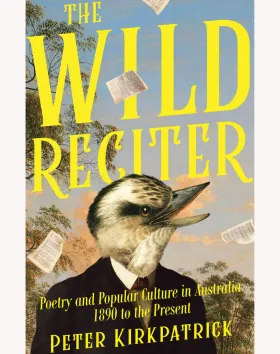
The Wild Reciter: Poetry and Popular Culture in Australia 1890-2020 by Peter Kirkpatrick
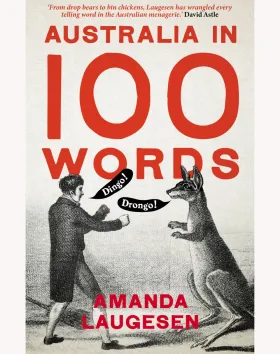
Australia in 100 Words by Amanda Laugesen
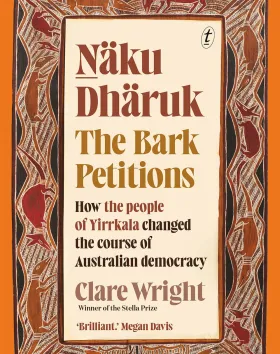
Ṉäku Dhäruk The Bark Petitions: How the People of Yirrkala Changed the Course of Australian Democracy by Clare Wright



